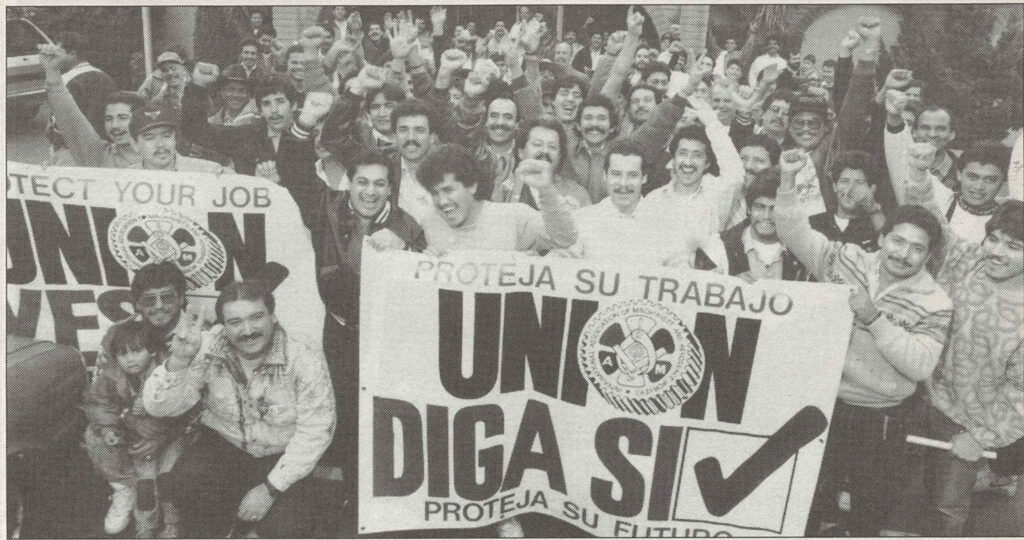In this excerpt of a 1995 speech on multi-union organizing strategy, David Sickler recounts the changing relationship between immigrant workers and organized labor in southern California and identifies some of the mistakes unions have made in their approach to immigrant workers. As the Regional Director for the AFL-CIO and head of the Los Angeles-Orange County Organizing Committee (LAOCOC), Sickler launched the California Immigrant Workers Association (CIWA) to organize undocumented workers into unions. This speech was delivered at the UCLA Labor Center.
Now I’m somebody who’s tried to organize immigrant workers in this town for 20 years. We’ve had some success here and there, but the movement’s never been able to prove to immigrant workers that it could deliver. That it could put its money where its mouth was.
Immigrant workers have always agreed with us philosophically. They know we’re advocates; they know we’re on their side. But they’ve been reluctant to get on board with us on a large scale because they’ve watched our failures. They know that some of our own unions in the past, when they’d go out and organize companies that had immigrant workers, if those workers went on strike and the employer replaced them with other immigrant workers, the union would call the INS and have the scab workers deported. The employer would then call the INS and have the strikers deported. That’s a great deal for immigrant workers. Welcome! Welcome to the institutions of the United States. But the labor movement changed its act in the 70s and the 80s, and we aren’t doing those kinds of things any more. Still, these workers just weren’t sure we could deliver. What happened with the signing of the Justice for Janitors contract sent shockwaves through the immigrant community in Southern California. It will never be the same, ever. Because about six months after the signing of that contract, 900 workers at American Racing Equipment in Rancho Domingas-and I’m telling you it’s 100 percent immigrant-staged a five-day walkout.
Now, I’m an organizer. I’m gonna tell you, 900 workers do not spontaneously walk out of a plant. There’s some leadership in there somewhere. There’s some organizing going on. You hear about hot-shop organizing? This was a super, super red-hot shop. These people organized themselves. And, of course, this is a classic example of how we as a movement respond. The day after 900 workers at American Racing Equipment go out on the street in a wildcat by themselves, 97 unions are out there with their jackets and their leaflets. “Join us; I’m with the Office Workers!” “Join us; I’m with CWA!” “Join us; I’m with the Steel workers!” “Join us; I’m with the IUE!” “Join us; we’re with UAW!”

